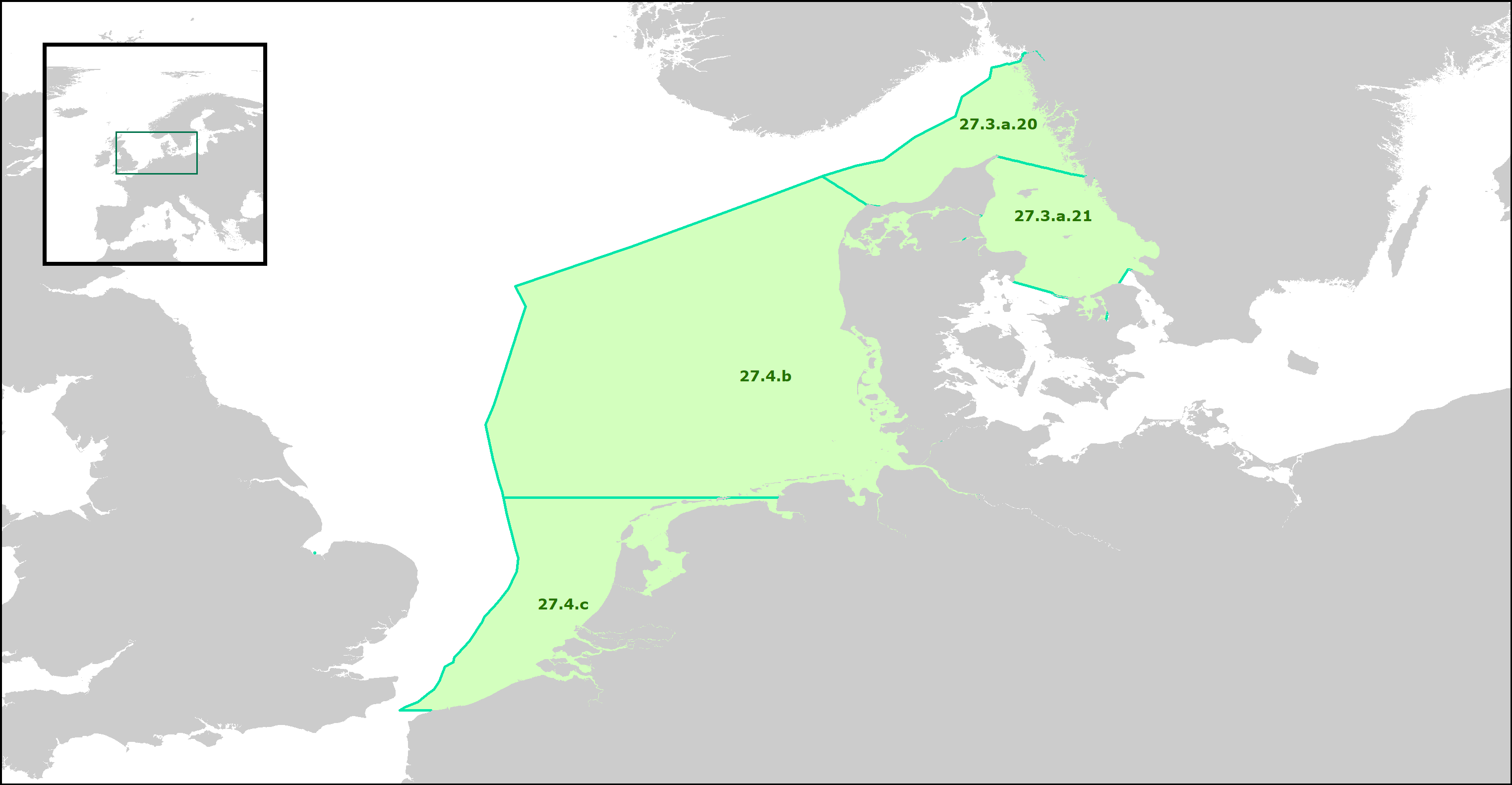EFCA coordinates the implementation of the specific control and inspection programme (SCIP) established for certain demersal and pelagic fisheries in the Union waters of the North Sea and ICES Division 2.a. The encompassing objective of EFCA’s assistance to the Member States concerned is to ensure the uniform and effective implementation of conservation and control measures applicable to demersal and pelagic stocks in the North Sea region. This concerns in particular the fisheries exploiting mackerel, herring, horse mackerel, blue whiting, argentine, sprat, sand eel, Norway pout, cod, haddock, whiting, saithe, Norway lobster, sole, plaice, hake, Northern prawn and European eel, as well as fisheries exploiting species under the landing obligation.
In order to meet this objective, the EFCA adopted, in cooperation with the Member States concerned, a dedicated organisational framework for operational coordination of inspection and surveillance activities in the North Sea area, known as the Joint Deployment Plan (JDP).
The North Sea JDP has been operating since 2007. The Member States participating in this JDP are Belgium, Denmark, France, Germany, Ireland, the Netherlands, and Sweden. Each year, the EFCA coordinates the planning, implementation and assessment of the North Sea joint campaign at regional level, aimed at ensuring compliance with the conservation and control measures in force.
On basis of an assessment of risks of non-compliance with the applicable measures, the North Sea Steering Group elaborates an annual strategy for the implementation of joint inspection and surveillance activities for the relevant fisheries, which the Executive Director of EFCA adopts in a JDP Decision. The operational arrangements are developed on a daily basis by the North Sea Technical Joint Deployment Group (TJDG), which involves close collaboration with the fisheries inspection authorities in the Member States concerned.
The operational arrangements also cover regular exchanges of inspectors to mixed and joint inspection teams, ashore and at sea respectively. The work of mixed and joint inspection teams brings the most tangible evidence of this uniform and effective implementation of inspection and surveillance activities. On a regular basis, joint coordination teams are established at the EFCA Coordination Centre, bringing together experts from EFCA and Member States for the operational coordination of the joint campaign.
Furthermore, the EFCA pays special attention to the development and application of standardisation and best practices in all aspects of inspection and surveillance operations. To this end, the EFCA works closely with the Member States concerned in various experts groups, at seminars for staff of fisheries monitoring centres and at workshops for inspectors. An additional level of assistance is provided by EFCA on missions to Member States concerned, and on the missions of the EFCA chartered Offshore Patrol Vessel (OPV).
The JDP organisational arrangements guarantee the high level of transparency, uniformity and effectiveness of joint inspection and surveillance activities through the establishment of permanent exchange of data and operational information, the application of risk management strategy at regional levels and close cooperation of the Member States concerned in the enforcement of conservation and control measures in force.

